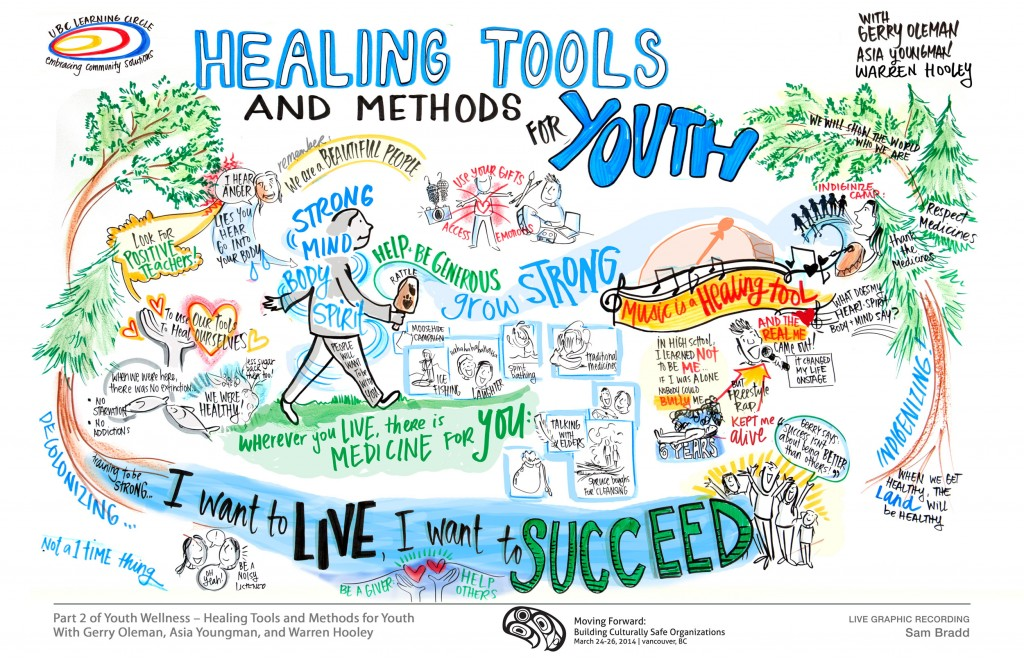Youth well-being is a pressing concern highlighted by recent findings from the Global Flourishing Study, which examines the intricate dynamics of happiness and health among young individuals across different nations. The study reveals that despite economic development, the mental health and social connections of youth often remain overshadowed, raising vital questions about the effectiveness of current investments in their futures. Notably, the study showcases a disturbing trend: youth happiness appears to stagnate during formative years, suggesting that financial security alone is inadequate for fostering long-term flourishing. Researchers emphasize the necessity of nurturing relationships and individual character alongside economic resources to truly enhance youth outcomes. Overall, the findings prompt an urgent call to action for policymakers and society to prioritize holistic approaches to improve youth well-being in a more meaningful manner.
The examination of adolescent wellness extends beyond mere financial indicators, venturing into a broader understanding of flourishing among younger generations. As researchers delve into concepts like thriving and fulfillment, they underscore the significance of emotional health, supportive social networks, and the importance of meaningful connections in elevating the quality of life for the youth. This holistic perspective not only addresses the tangible aspects of economic success but also tackles the foundational elements contributing to a balanced life. Increasingly, experts argue that nurturing positive mental health and fostering environments conducive to personal growth are paramount in cultivating happiness among today’s youth. Consequently, redefining our approach to youth wellness can lead to more effective strategies that resonate deeply with the challenges they face.
Understanding Youth Well-Being in a Global Context
Youth well-being is an increasingly pressing concern as new data reveals troubling trends globally. The Global Flourishing Study underscores that youth happiness is not solely dependent on economic wealth; rather, it involves a complex interplay of social, emotional, and health-related factors. In countries where there is a focus on building strong social connections and community support structures, such as Indonesia and Mexico, youth report higher levels of well-being. This points to the importance of investing in community-driven initiatives to foster a sense of belonging and identity among youth.
Moreover, the findings suggest that mental health plays a crucial role in determining the overall flourishing of young individuals. With rising rates of anxiety and depression among youth, it becomes imperative for policymakers and educators to prioritize mental health resources and educational programs that promote emotional resilience. By addressing both access to mental health care and the cultivation of supportive environments, we can significantly enhance youth well-being on a global scale.
Economic Development: More Than Just Wealth
Economic development has traditionally been viewed through the lens of financial growth and status. However, the revelations from the Global Flourishing Study challenge this linear approach, indicating that financial prosperity does not guarantee increased well-being. For instance, while Japan ranks high in economic development, it reports lower levels of social connections and personal fulfillment among its citizens, particularly in the youth demographic. This highlights the need to consider qualitative aspects of development, such as social capital, as fundamental components of flourishing.
The J-shaped curve identified in youth flourishing suggests that improvements in mental health and social relationships might be more vital than mere financial gains. Middle-income countries often achieve higher overall rankings in well-being, signaling that there may be alternative pathways to prosperity—those emphasizing social engagement and community collaboration. The juxtaposition of wealth and well-being invites a reconsideration of developmental models to include metrics reflecting the psychological and relational health of a nation.
The Role of Social Connections in Flourishing Youth
Social connections are pivotal in enhancing youth happiness, as affirmed by various studies and reaffirmed by the Global Flourishing Study’s findings. Young individuals who maintain close friendships and supportive relationships during adolescence tend to show higher levels of well-being. They experience lower rates of mental health issues and report greater satisfaction in their daily lives. This emphasizes the critical need for nurturing social environments both at home and in educational settings, where youth can build and maintain these essential connections.
Fostering social connections not only benefits individual youth but also has wider societal implications. Communities that encourage social engagement tend to be more resilient, thriving in various aspects of life. The role of communal activities—such as volunteering or group sports—cannot be overstated, as these opportunities allow youth to forge bonds that enhance their emotional and social development. Thus, investment in programs that promote interaction among young people can serve as a catalyst for broader social improvement, contributing significantly to youth well-being.
The Interplay Between Mental Health and Economic Factors
Mental health and economic factors often interact in ways that can either hinder or enhance youth well-being. The Global Flourishing Study highlights a troubling trend: as financial pressures mount in wealthier nations, young people increasingly struggle with mental health issues. Investing in economic development and infrastructure is essential; however, it should not overshadow the urgent need to address mental health resources. Countries must develop policies that include support systems to buffer youth against the psychosocial strains of modern life.
Furthermore, economic stability should not solely focus on quantitative measures. Qualitative aspects, such as job satisfaction and work-life balance, play a significant role in determining youth mental health. By ensuring that young people have access to jobs that promote both economic security and personal fulfillment, nations can foster healthier, more flourishing generations. Comprehensive approaches that consider both mental health and economic conditions hold promise for enhancing overall youth well-being.
Spiritual Well-Being and Youth Flourishing
Increasingly prominent research into spiritual well-being indicates that it significantly contributes to youth flourishing. The Global Flourishing Study points out that youths who engage in spiritual practices or participate in religious communities report higher levels of overall well-being. This suggests that dimensions beyond the material—such as purpose, values, and community—play crucial roles in shaping youth happiness and resilience. Encouraging spiritual exploration can therefore enrich the lives of young individuals, providing them with grounding and a broader perspective on life.
As nations evolve economically and socially, maintaining a focus on spiritual well-being amid rapid change is vital. The shift towards secularization in many developed nations raises questions about the loss of shared communal values that often accompany such transformations. Communities can benefit from integrating spiritual pathways alongside economic development by creating environments where young people can explore their beliefs, connect with others, and cultivate a profound sense of meaning in their lives.
The Importance of Family Relationships for Youth Well-Being
Family relationships have a profound impact on youth flourishing, as evidenced by the Global Flourishing Study’s findings. Having supportive and engaged parents is a notable predictor of happiness and mental health in young people. Across cultures, those with strong familial ties report increased levels of satisfaction and a sense of security. This insight emphasizes the need for policies and programs that support family engagement and education, fostering healthy dynamics at home.
Moreover, nurturing family bonds isn’t just about providing material wealth; emotional support and open communication are equally important. Programs that educate families on healthy relationships can drastically improve youth outcomes, enhancing their capacity to form social connections outside the home. Investing in family-focused initiatives ultimately benefits society by fostering a generation of young individuals who are well-supported and better equipped to navigate life’s challenges.
Longitudinal Studies: Tracking Youth Flourishing Over Time
Longitudinal studies such as the Global Flourishing Study provide invaluable insights into youth well-being by documenting changes over time. With annual surveys planned, researchers can observe how shifts in economic conditions, societal factors, and personal experiences affect youth happiness and mental health. This dynamic approach allows for a more nuanced understanding of what contributes to flourishing, enabling targeted interventions to enhance youth well-being.
Following the same cohort over time enriches the analysis, revealing patterns of flourishing that may not be evident in cross-sectional studies. This longitudinal data will help in identifying critical periods that require specific support, enabling tailored approaches that align with the developmental needs of youth at various stages. As the study rolls out yearly analyses, insights will emerge that could guide future investments in policies supporting youth happiness and mental health.
Balancing Economic Growth with Social Well-Being
The relationship between economic growth and social well-being is intricate and often contentious. As highlighted by the Global Flourishing Study, countries may experience high economic growth without corresponding improvements in youth well-being. This disconnect raises essential questions about the sustainability of growth strategies and their alignment with the holistic development of society. Finding a balance between economic pursuits and enhancing social frameworks is crucial for fostering resilient communities.
Moreover, policies should be designed not only to stimulate economic activity but also to enhance social indicators of well-being. This dual focus can lead to a healthier populace that is better equipped to contribute to economic sustainability. Prioritizing social connections, mental health resources, and community engagement alongside economic frameworks will create a robust environment for youth flourishing, ultimately resulting in a more fulfilled and productive society.
Future Directions for Youth Well-Being Initiatives
With significant findings from the Global Flourishing Study, there is an urgent need for new initiatives targeting youth well-being. Policymakers, educators, and communities must pivot towards evidence-based strategies that reflect the complex realities of today’s youth. This involves re-evaluating existing programs, integrating mental health support into educational curricula, and fostering environments that encourage social participation and engagement.
In addition, ongoing research and assessments are critical to adapting youth well-being strategies effectively. By continuously measuring the impact of implemented programs, stakeholders can refine their approaches based on emerging data. This iterative process will contribute to forming a comprehensive framework, ensuring that all aspects of youth well-being are addressed and evolving alongside their needs.
Frequently Asked Questions
What are the primary factors influencing youth well-being according to the Global Flourishing Study?
The Global Flourishing Study identifies several key factors influencing youth well-being, including mental health, social connections, happiness, and financial security. Relationships with parents and the overall health of youth in childhood profoundly impact their flourishing in adulthood. The study emphasizes the importance of nurturing supportive environments to foster better outcomes for youth.
How does economic development relate to youth well-being?
The Global Flourishing Study reveals an interesting relationship between economic development and youth well-being. While wealth can provide resources, it does not automatically ensure youth happiness or flourishing. Countries like Indonesia ranked higher in measures of social connections and character traits compared to wealthier nations, highlighting that meaningful relationships and community ties are crucial for youth well-being.
What role does mental health play in the overall well-being of youth?
Mental health is a fundamental component of youth well-being, significantly affecting happiness and overall flourishing. The Global Flourishing Study findings underscore that youth mental health issues are on the rise, especially in wealthier nations. Promoting mental wellness is essential for enhancing youth’s emotional resilience and social connections.
How can social connections impact youth happiness?
Social connections are vital for fostering youth happiness. The Global Flourishing Study indicates that strong relationships with family and friends contribute to higher levels of well-being among youth. These connections provide emotional support, improve mental health, and create a sense of belonging that is crucial for overall flourishing.
What insights does the Global Flourishing Study provide on youth well-being in the U.S.?
The Global Flourishing Study highlights significant concerns regarding youth well-being in the U.S., illustrating a marked decline in flourishing levels among young people compared to older adults. This troubling trend raises questions about the effectiveness of current investments and strategies for supporting youth mental health and social development.
How does childhood experience affect youth well-being in adulthood?
Childhood experiences play a critical role in shaping youth well-being in adulthood, as revealed by the Global Flourishing Study. Positive relationships with parents and robust health during childhood are strong predictors of greater flourishing later in life, emphasizing the importance of nurturing environments for youth development.
What is the significance of spiritual well-being in youth flourishing?
Spiritual well-being is an often-overlooked aspect of youth flourishing. The Global Flourishing Study indicates that engagement in spiritual practices or religious service attendance correlates with higher levels of happiness and meaning in life. This suggests that fostering a sense of purpose can be essential for promoting comprehensive youth well-being.
| Key Points | Details |
|---|---|
| Study Overview | A major global study focusing on youth well-being, involving around 203,000 participants across 22 nations. |
| Flourishing Definition | Defined by seven variables: health, happiness, meaning, character, relationships, financial security, and spiritual well-being. |
| Ranking Insights | Middle-income countries ranked higher for well-being than wealthier nations, with Indonesia topping the list. |
| Youth Well-being Crisis | A concerning trend showing that youth in the U.S. experience lower well-being compared to older adults. |
| Implications | Raises questions about the effectiveness of economic growth and its impact on youth relationships and fulfillment. |
| Future Directions | Continued research to explore spiritual and character dynamics in youth well-being as part of economic development. |
Summary
Youth well-being is a critical issue highlighted by recent studies, revealing that financial wealth does not equate to higher wellbeing among young people. The Global Flourishing Study indicates that middle-income countries often provide better environments for flourishing compared to wealthy nations. This suggests a need for renewed focus on emotional, social, and spiritual dimensions of youth development, ensuring investments in programs that nurture both mental health and community relationships. As societal priorities continue to evolve, it is essential to address the unique challenges facing the younger generation, to foster a healthier and more supportive future for all.



